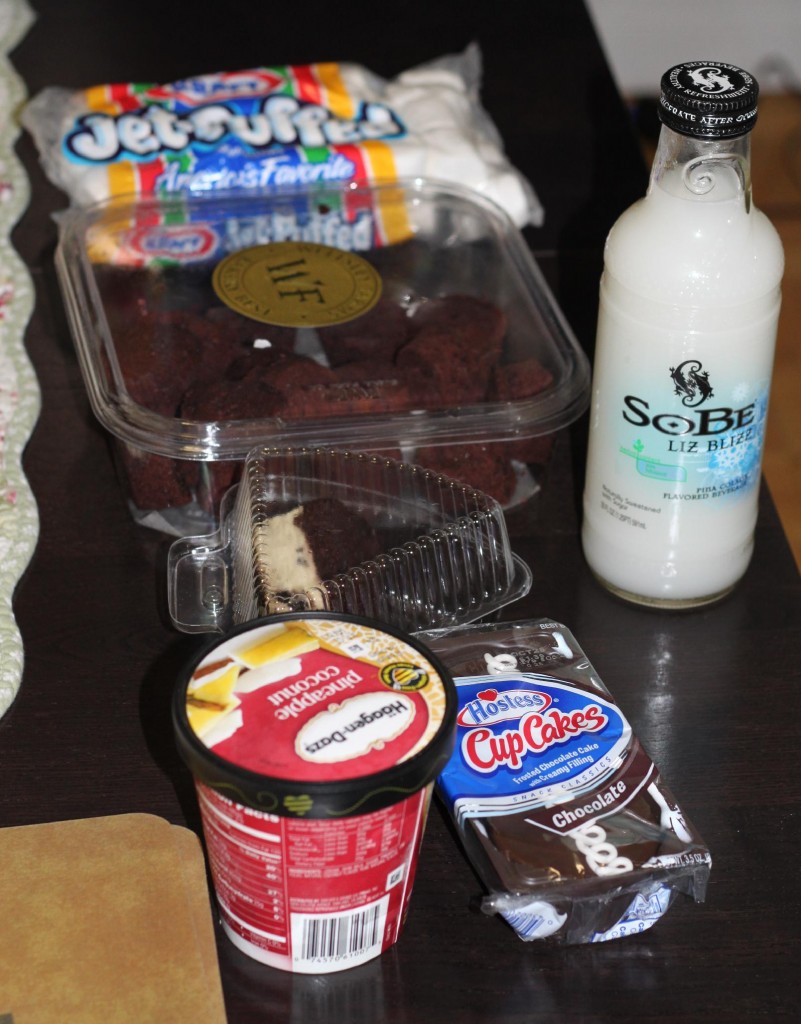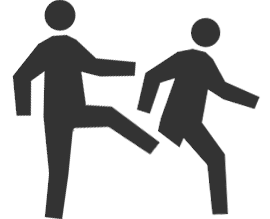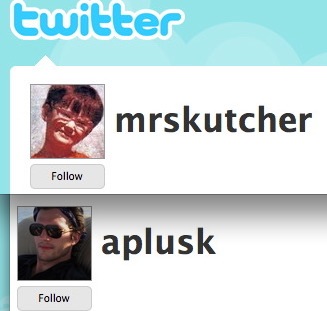
I keep wavering back and forth whether to publish this post. This was originally written in November 2009 – half a year ago – and I have hesitated whether to publish it since then (and like I said, I’m still not sure I should’ve). But it’s almost 4am and usually my judgment is a bit clouded at these hours… and I can always remove it later (if you think I should: please comment below? I won’t be offended).
Most people who know me realize I have an unconventional sense of humor – though I usually tone it down depending on circumstances. I’d like to think most people “get” my sense of humor, but not everyone do.
The following events took place when I was trying to work and do something very hard and very important and just felt I couldn’t concentrate. Sometimes in similar situations, I need something sweet… badly. That day, there was nothing at home, and I felt I would go crazy unless I get something. I felt I need cupcakes.
So I let loose… didn’t tone myself down at all.
You may ask why am I posting this in my blog? Good question. This, in my opinion, is the perfect example of Twitter for people who don’t use it (in a non-business context). It demonstrates.. the appeal.. of this medium: the fact you can have group chats in real time and people can jump in and out of conversations without you knowing them beforehand. You couldn’t do this in Facebook or Google. Only a real time social media network would enable you to do something similar. Even a chat room wouldn’t enable that, as the number and diversity of people listening would be far more limited.
Interestingly, I lost some followers during these events, but I gained many more. This later encouraged me to do much much more of these on Twitter. Yet I haven’t published any of these (mis)adventures on this blog. Note that people kept sending me pictures of cupcakes for months after these events.
Hopefully my readers will think it’s both amusing and relevant.
..and like I said, I reserve the right to remove it..
Thus started the cupcake saga. Here’s a summary of the twitter messages that took place on that day. It started like this
(each line is a tweet)
me: Anyone has cupcakes they can send me? I really need some #cupcakes #goodpeople #please
lefinley: in the oven now…..address please? 😉
me to lefinley: #chocolatechipcookies will do too. How soon can you make it??? This is an emergency
me to lefinley:
lefinley: sorry – can’t get 2 NJ in time….plan ur emergencies in the future please! 😉
me: Where do I find cupcakes in Jersey City on a Saturday? The place is desolate on the weekend. ARGHH!!! Help!
ColleenBurns: found it on @yelp they are open till 6 “Made with Love Bakery”
Me to ColleenBurns: RT found it on @yelp they are open till 6 “Made with Love Bakery” -> probably closed and far from my place, but if I start
Me to ColleenBurns: RT found it on @yelp they are open till 6 “Made with Love Bakery” -> running like a madman, I may make it. I need cupcakes.
Me to ColleenBurns: RT found it on @yelp they are open till 6 “Made with Love Bakery” -> Oh, and forgot to say: THANKS!!!!!!!!!!!!!!!!!!!!
Me to lefinley, heykim: Thanks for trying to help, much appreciated!
Georgia_Teacher: Why in the world are you in Jersey City on a Saturday looking for donuts?
Me to Georgia_Teacher: Not donuts. Cupcakes. Donuts would be like giving Tylenol to a terminal patient. I need cupcakes.
Me: If I don’t get cupcakes soon,something terrible will happen, not just to me, but to everyone in the area, if I don’t get cupcakes soon.
Me: I suspect I’ll implode and start sucking everything around me, kind of like a mini-black hole. But that’s just an unproven theory
[noticing people are unfollowing me]
Me: Nice to see my cupcakes threats are make people unfollow me. This is not an idle threat. Bad stuff will happen. I need cupcakes!
Me: Even my English is breaking down as apparent in my last few tweets. Ok, that’s it. I’m going outside
lefinley: no problem – good luck on your search = YELP rocks!
Me to lefinley: As things should. I’m sure some disaster movies have started with a guy desperately needing cupcakes.
Me: Ok, got the address of a cupcake place. Leaving now. If this works I’ll tweet a picture. If this doesn’t, you’ll hear about this
Me: “Man mysteriously implodes, police are investigating. Looks like a cupcake deficiency caused this natural disaster”
[Walking for an hour randomly]
Me (through cellphone): I must be miles from home. Found a Dunkin Donuts place. No cupcakes. Danger now spans NYC as well.
[Walking for 2 hours, bypassing my house by at least 25 minutes, half delirious, eventually I got home with some loot]
Me: So here’s what happened (BTW, I think this episode cost me quite a lot of followers. Have mercy people, I was in distress)
Me: I walked for miles and miles and got completely lost (no shoprite). Every place I asked, no cupcakes. I could tell people were afraid of me.
Me: Eventually I got to a shop. By then it was really bad. I asked for cupcakes but all that came out was grunts. I must’ve appeared deranged
Me: I tried to say “I have a Ph.D., I won prestigious awards, I used to work for Goldman Sachs”. But nothing coherent came out of my mouth
Me: Eventually I pointed out at the hostess cupcakes and paid for them. I knew by then this would not be sufficient to prevent the upcoming doom
Me: The poor people of NJ and NY didn’t realize what will happen unless I eat quality cupcakes.
Me: So I got hostess cupcakes, 16 brownie bites, ice cream, marshmallows and an Oreo cake.
Me: I hope this will save us. May god have mercy on our souls.
Aftermath
me: I’ve eaten them, feel much better now.
carribean_skye: were you looking scary too?
Me to caribbean_skye: I think I looked a little bit like when Bruce Banner starts the transformation to the Hulk
Me: Well, I’m back to work. I think the disaster has been averted thanks to my heroic efforts. Unsung heroes, now I understand the meaning.







